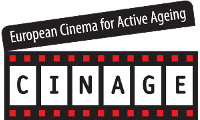Model of competencies for active ageing
The six competencies for active ageing
The ‘competencies’ depend on societies and communities that support active ageing, and on capacities in individuals. The definitions of competencies below are a synthesis from wide reading and not attributable to any one source.
- Learning
-
This concerns opportunities to take part in learning in older age, including self-directed learning, opportunities to update or develop skills, creative learning opportunities, and training in new technologies.
- Civic and community
-
This concerns being an active older citizen, taking part in voluntary or paid activities of benefit to the individual and society. The community to which an individual contributes can be a family, local service, neighbourhood, town, region, national or global. Civic activity can also contribute to intergenerational cohesion.
- Health
-
This concerns maintaining well-being in older age, which has physical, mental and social aspects. Lifestyle, quality of services and support, and opportunity for social connections, care and security can influence health and well-being.
- Emotional
-
This concerns maintaining autonomy and dignity in older age, and also providing and receiving meaningful social and emotional connections, care and support, at home and in the community.
- Financial/Economic
-
This concerns aspects of the economic environment that have a particular impact on active ageing and security: in other words, income, opportunities for work, and social protection e.g. pensions and other allowances.
- Technological
-
This concerns access to and use of technology, including computers, mobile phones and apps - for social networking, e-communication, elearning. It also concerns assistive technologies, for example for mobility to maintain active ageing; or for obtaining care to support independence, for example telecare.


 This project has been funded with support from the European Commission.
This project has been funded with support from the European Commission.